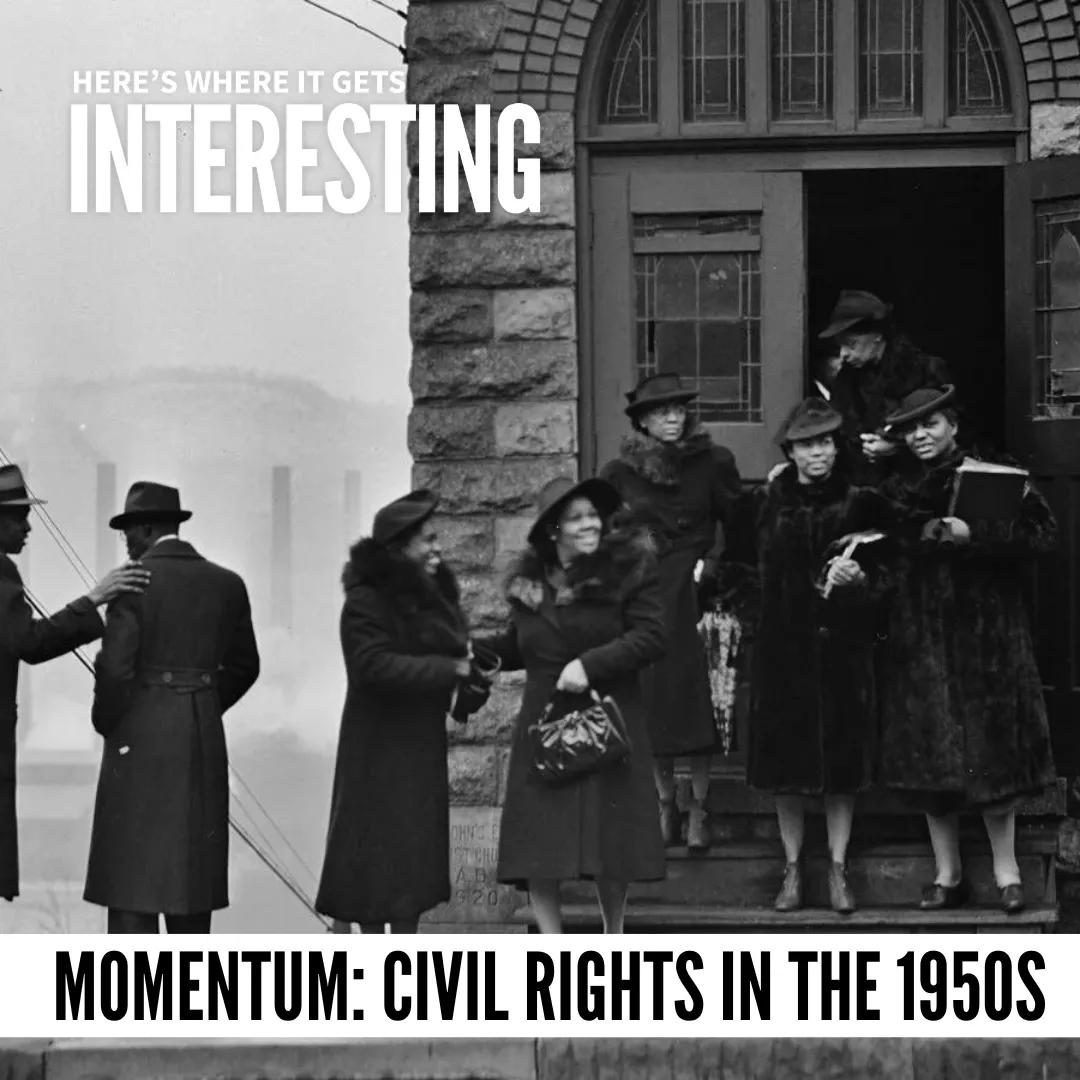Momentum
Momentum

Momentum
Momentum: The Ripples Made by Ordinary People, Part 13
Momentum: The Ripples Made by Ordinary People, Part 13
It was used as a tool of oppression and an excuse for many white people, especially in the South, to remain firm and justified in their belief of white supremacy. What tool is that? Religion.
But religion was also a catalyst for change. Black churches and congregations invigorated communities by encouraging people to gather, to plan, to organize, and to keep the faith for small, incremental wins in the fight for equal access and rights. In fact, the Civil Rights Movement may not have seen the success it did without the empowerment of Black American Christian culture.
Sharon takes a closer look at the role of religion, especially how it was practiced in many Southern states in the 1950s. What led to church-sanctified mob violence? How did the role of the church sermon become a catalyst for a movement of civil liberties and freedom? Stick with us to find out more.
- Host: Sharon McMahon
- Executive Producer: Heather Jackson
- Audio Producer: Jenny Snyder
- Writers and Researchers: Sharon McMahon, Heather Jackson
- Host: Sharon McMahon
- Executive Producer: Heather Jackson
- Audio Producer: Jenny Snyder
- Writers and Researchers: Sharon McMahon, Heather Jackson